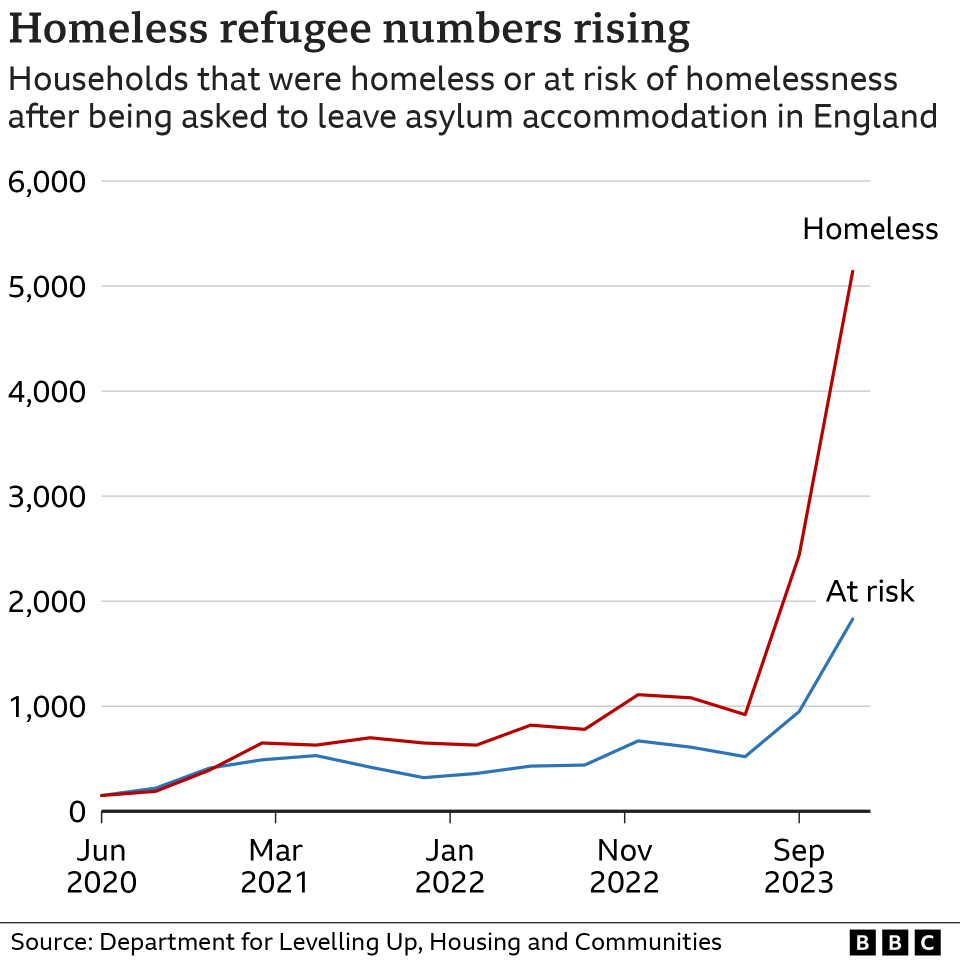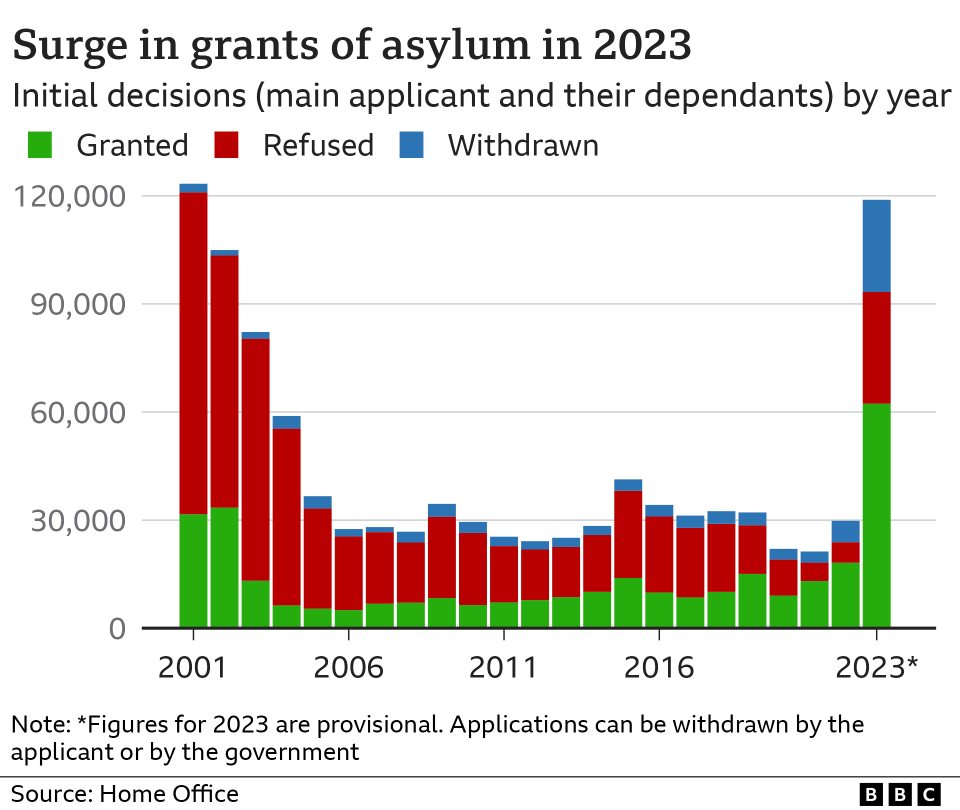Asylum homelessness rises as refugees told to leave accommodation

More than 5,000 refugee households were classed as homeless between October and December 2023 in England, four times as many as in the same period in 2022.
The refugees became homeless after gaining asylum, so they were no longer entitled to Home Office accommodation.
The Refugee Council charity said they were being "set up to fail" and needed more time to find places to live.
The Home Office said it was "working to make sure" refugees had the support needed.
During the whole of 2023, local councils in England accepted 9,580 households as needing help after becoming homeless because they had had to leave asylum accommodation - up from 3,340 in 2022, with most of the rise coming in the second half of the year - according to the Department for Levelling Up, Housing and Communities (DLUHC).
The number of refugee households classed as at risk of homelessness also increased.
The term household is used to refer to single people, couples or families.

Asylum seekers can be housed in Home Office accommodation while their claim is assessed.
If they are successful, they become recognised as refugees - entitled to work and receive state benefits.
But they also lose their right to stay in Home Office accommodation for asylum seekers and are given 28 days to find a new place to live.
From that point on, councils look after housing, if the refugees are unable to.
Councils have rules for assessing whether someone is homeless or at risk of homelessness and whether they are entitled to help with keeping or finding new accommodation or even to be given emergency housing.
Homelessness includes:
rough sleeping
sofa surfing
living in unsuitable or insecure accommodation
Refugee Council chief executive Enver Solomon said asking people to find a job and housing within 28 days was "unrealistic" and "means destitution and homelessness is too often inevitable".
Calling for the "moving-on period" to be at least doubled, he added: "This dramatic rise in refugee homelessness is the tragic-yet-predictable consequence of a dysfunctional system that sets newly granted refugees up to fail."
Last August, the government began counting the 28 days from when asylum seekers received their decision letter granting them refugee status, rather than their residence permit entitling them to find accommodation and employment, open a bank account or claim benefits, leaving some with as little as a week to find somewhere to live before being evicted from Home Office accommodation.
One of them, Ali Ibrahim, who had fled the civil war in Darfur, Sudan, camped outside the West Berkshire Council offices in Newbury.
The change to the notice period was later reversed - but the latest figures include the time it was in force.
As the government strove to meet Prime Minister Rishi Sunak's end-of-2023 deadline for processing all asylum claims made before July 2022, the Home Office also ramped up the number of decisions made on applications, making more in the last six months of 2023 than in the two years before that.
But the record levels of grants left more refugee families facing homelessness.

The Local Government Association, which represents councils, said local authorities were facing a shortage of available and affordable housing for people leaving Home Office asylum accommodation.
"Councils continue to see growing demand for housing advice and support as they process a backlog of claims from those seeking asylum," an official said.
"Shortages of available and affordable housing mean that those leaving asylum accommodation will struggle to find homes to move on to.
"People receiving certainty on their claim is a positive step and we want to work with government on developing a better system for supporting asylum seekers to find permanent homes."
A government spokesperson said: "Once a newly recognised refugee is issued a biometric residence permit, they get 28 days to move on from asylum accommodation.
"Support is also available through Migrant Help and their partners, which includes advice on how to access Universal Credit, the labour market and where to get assistance with housing.
"We are working to make sure individuals have the support they need following an asylum decision, and to help local authorities better plan as we reduce the number of asylum seekers awaiting a decision."
Additional reporting by Robert Cuffe.


